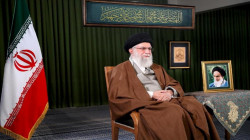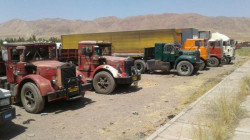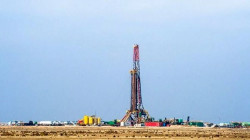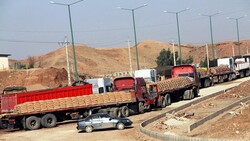Technical Glitches in Iranian Gas Supply Lead to a Drop in Iraqi Power Production: Minister

Shafaq News/ Technical issues has disrupted the gas supplies from Iran to southern Iraqi power plants, Iraq's Minister of Electricity Ziad Ali Fadhel said on Sunday.
This setback has precipitated a substantial dip in the power production capacity of the national electricity grid, amounting to a loss of 1000 megawatts.
"While our diligent staff are endeavoring to augment production capabilities, and ensure the readiness of our generation units to meet the increased demand accompanying the summer's peak loads, we have been met with an unexpected halt in the gas imports to the southern governorates -a situation attributed to technical hitches on the Iranian side," the minister explained in a press release by his bureau.
The interruption has consequently instigated load restrictions at key gas stations, including Shatt al-Basra, Rumaila, and Najaf, primarily located in the central Euphrates region.
This predicament has stripped the system of an estimated 1000 megawatts of its production capability, thereby subtly influencing the hours of electricity provision.
Faced with these emergent constraints, Minister Fadel advocated for intensified coordination with the Ministry of Oil, broaching the potential of replenishing the gas deficit essential for station operations.
The minister appealed to citizens to adhere to rationalized energy consumption practices, advising the cessation of non-essential devices and lighting.
Fadel added, "By encouraging prudent energy usage, we can better manage the loads and assuage the operational cost of procuring additional gas."
Iraq is under increasing pressure from the US to wean itself off electricity and gas imports from Iran, which has been subject to US sanctions since 2018.
The US has issued Iraq a series of sanctions waivers to continue importing Iranian energy but has warned the waivers could end if Baghdad does not make serious progress toward finding other fuel and power sources.
In addition to gas supplies, Iraq also relies on Iran for nearly a third of its electricity, though this too has been subject to interruptions.
For instance, when Tehran reduced gas supplies from 50 million cubic feet to 8.5 million cubic feet to Iraq because of unpaid bills, widespread electricity shortages struck central and southern governorates.
Though Baghdad has sought to diversify its electricity supply through overtures to countries such as Saudi Arabia, Turkey, Jordan, and Kuwait, progress on these fronts is not sufficiently developed.
Nearly two decades after the fall of Saddam Hussein's statues, the Iraqi government still struggles to provide its society with electricity around the clock. The Iraqi electricity sector suffered even before the 2003 invasion, but the last 19 years have seen it weakened even more due to endemic corruption and gross negligence.
The plans put forth by the consecutive governments to tackle the lack of electricity have more often proven an easy way for officials to embezzle funds through lucrative contracts than a way to improve the lives of Iraqi citizens. As a result, instead of leveraging its own resources, Iraq has become more reliant on Iran to meet its electricity demands.
Widespread electricity outages are part of daily life in Iraq and affect citizens regardless of class. To compound this issue, the gap between available electricity and state-wide demand is set to widen in the future.
The past five years have already witnessed a growing disparity between electricity supplied by the government and the electricity demanded by the Iraqi people; so far, Iraqi electricity consumption—which grew nearly 30% during this period—has outpaced the government's efforts to meet surging demand.





